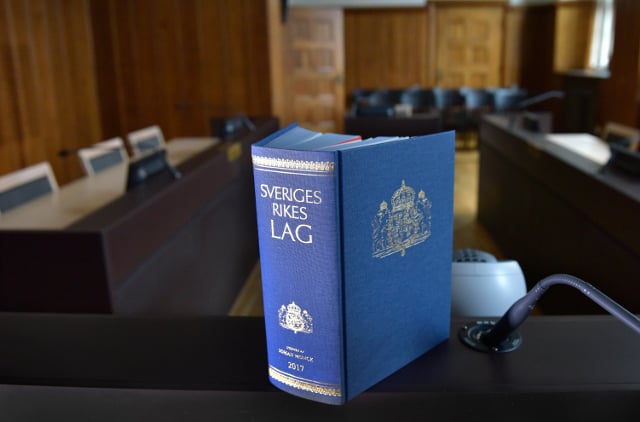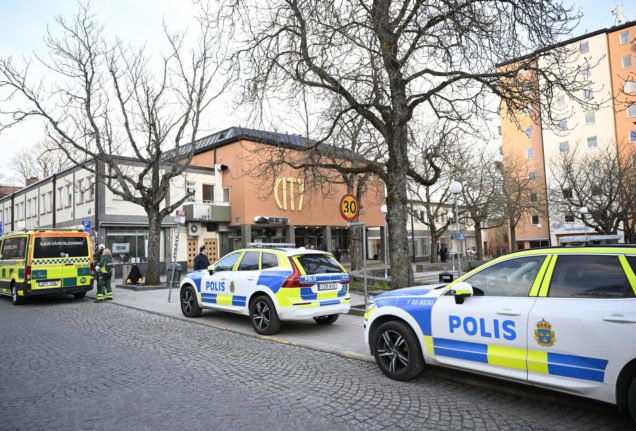The aim of the legal system is to prevent and combat crime of different kinds, and to help keep order in society by supporting victims of crime and bringing perpetrators to justice.
The basics
In Sweden, all people accused of a crime are considered innocent until proven guilty.
Everyone in Sweden has the right to have any case heard by an independent, impartial court. This means that the courts are totally independent from the government; although the Ministry of Justice oversees the justice system and is responsible for passing legislation, no person or authority can decide how the court should rule.
This means that while the Ministry of Justice decides on the legislation, it does not have power to intervene with court decisions or the way that the legislation is applied. Nor does any individual minister; the rule that forbids this is called the Instrument of Government, also known as the 'ministerial rule'.
Victims of crime are generally entitled to free legal counsel and in some cases defendants are also entitled to legal aid, usually if they are on a low income. People who do not speak fluent Swedish are entitled to state-funded interpreters during trials, in order to ensure the rule of law is followed.
Three tiers
Criminal cases in Sweden, as well as some civil cases, are dealt with by general courts (allmänna domstolar). Meanwhile, cases between individuals and Swedish authorities are dealt with by general administrative courts (allmänna förvaltningsdomstolar), while some special courts deal with other specific kinds of cases; the Labour Court deals with labour disputes and the Migration Court with migration-related cases, for example.
Within the general criminal courts, there are three tiers.
Cases are first heard by the district court (tingsrätt). The next step is the court of appeal (hovrätt), which deals with cases which have already received a judgment from a district court.
The final tier is the Supreme Court (Högsta domstolen). Cases only reach this level if the Supreme Court itself decides that it is important to hear the case in order to establish a precedent for the lower courts, in which case it will grant the leave to appeal.

Photo: Leif R Jansson/SCANPIX/TT
The legal process for criminal cases
When a crime is committed in Sweden, or when a crime is suspected to have been committed, police will first open a preliminary investigation. This is led by police, but if there is good cause to suspect a specific person of the crime or in some other special circumstances, a prosecutor may lead the preliminary investigation.
This preliminary investigation may be discontinued, for example if there is insufficient evidence, but otherwise it is up to the prosecutor to decide whether to press charges. The prosecutor is obligated to carry out the preliminary investigation even if the person who reported the crime withdraws their report.
If the prosecutor initiates prosecution proceedings (väcka åtal), the suspect receives a summons to a district court. Most cases will involve the prosecutor, who presents their claims; the defendant, who has the chance to present their own portrayal of events; and any injured party or plaintiff, who may be cross-examined, possibly along with other witnesses, as part of the evidence presented.

File photo: Mikael Fritzon/TT
Detention and arrest
If a person is suspected of a crime, they might be apprehended (gripen) by police (or, rarely, by a member of the public in a 'citizen's arrest'), and held for questioning for a maximum of 12 hours in total. After this time, the prosecutor leading the preliminary investigation must make a decision on whether to keep the suspect in custody (anhållen). The suspect will be kept in custody only if the prosecutor believes there are grounds to arrest them, and they can only be anhållen for a total of three days from the initial detention.
After that, the suspect must either be released or the prosecutor may request to have them detained/remanded (begärs häktad). If they make this request, the court must hold a detention hearing within 24 hours, at which they decide whether to keep the suspect in custody.
In order to remand the suspect, the court must believe there is “probable cause” to believe the suspect committed a crime that could result in imprisonment of at least one year. They must also rule that there is a risk of the suspect fleeing, committing further crime, or harming the investigation, in order to keep them in custody. This means that suspects may be released (släppa på fri fot) even if they are still under suspicion, if they are not considered a flight risk or likely to harm the investigation.
After the häktning, the prosecutor has an initial period of 14 days in which they can bring the case to trial. But in theory, this can be extended indefinitely if the court believes there is good reason, something which has been criticized by human rights groups.
Public access
The public's right to insight into the justice system is guaranteed under Sweden's Instrument of Government and the Freedom of the Press Act. Members of the public can often access documents relating to criminal cases, and can attend hearings (court hearings are known as 'trials' in informal speech, rättegångar).
But in some cases, these rights may be restricted in order to protect both individuals involved in the case and the general public. This is common in cases involving minors, as well as sexual assault cases.
Even in cases which take place behind closed doors, the court's judgment is usually made public, although it may have been anonymized, for example to remove the names of minors.
The preliminary investigation becomes a public document as soon as the prosecutor initiates prosecution proceedings.
Judges and no jury
Swedish courts use lay judges, who aren't qualified legal professionals but help the professional judge or 'presiding judge' to apply legal rules. The lay judges take on the role which is taken by juries in countries with a jury system. Lay judges are appointed by political parties at municipal level, although this practice has been criticized.
In the criminal law system, there are three lay judges and one professional judge in district courts, and three professional judges and two lay judges in appeals courts. In the supreme court there is no lay judge involvement.
After the hearing in a district court, the judges deliberate and each judge has one vote in order to decide on how they will rule. The presiding judge then pronounces the judgment (domen); in other words, they briefly summarize the decision.
In Sweden, the verdict and sentencing are pronounced at the same time, and if it is a relatively straightforward case, the judge may do so on the last day of the trial. However, more often it takes up to two weeks, and the judge will state at the end of the trial on what date the judgment can be expected.
 Photo: Jessica Gow/SCANPIX/TT
Photo: Jessica Gow/SCANPIX/TT



 Please whitelist us to continue reading.
Please whitelist us to continue reading.
I appreciate this article very much even though I hope to never REALLY need the ‘bad stuff.’ Tack.
@Claptonfan: Thank you, that’s good to hear!
Just curious if anyone has an idea of how long it takes to get a trial?
I have an evil employer who has not paid my salary for 8 months!!! We are probably headed to trial if she does not pay by Friday. So bizarre.